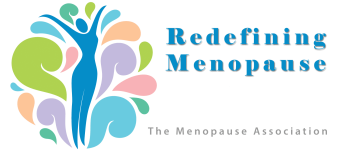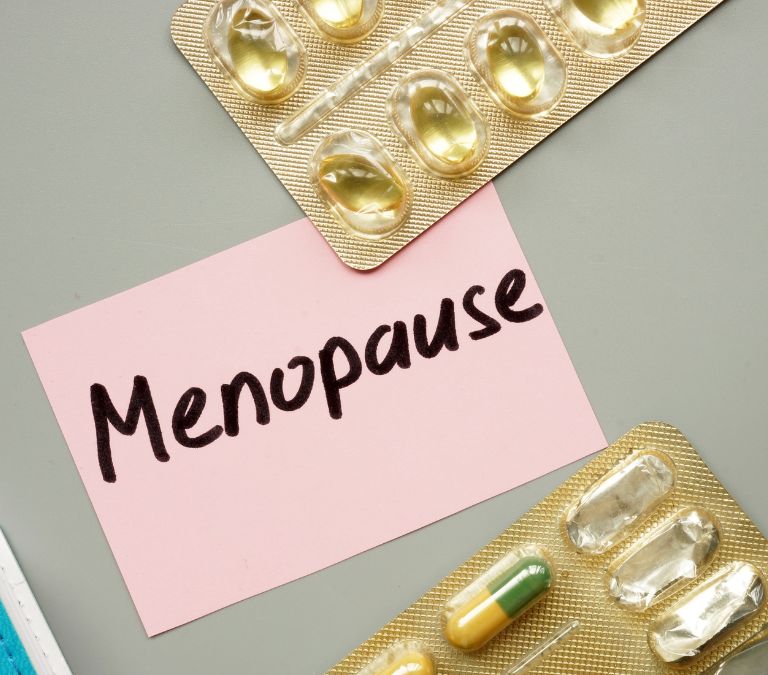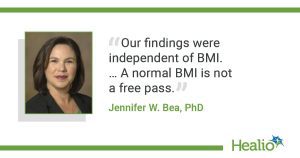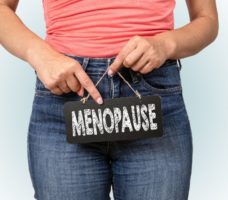Almost everything about them changes when women go through perimenopause, menopause, and eventually post menopause—one of the things to be mindful of after menopause is the woman’s health. As a woman, once you have passed menopause, you will need to be intentional about your health and healthcare.
Due to a series of internal changes during menopause, postmenopausal experiences may come with some health-related issues if not handled well because of the hormonal imbalance caused by this new phase. Therefore, there is much to care for as far as health is concerned for a woman after menopause.
Women with medical conditions before menopause must take their health more seriously after menopause. Attention to health is vital because combining the premedical condition with likely health issues that may come with postmenopause experience will require much attention.
What Is Postmenopause?
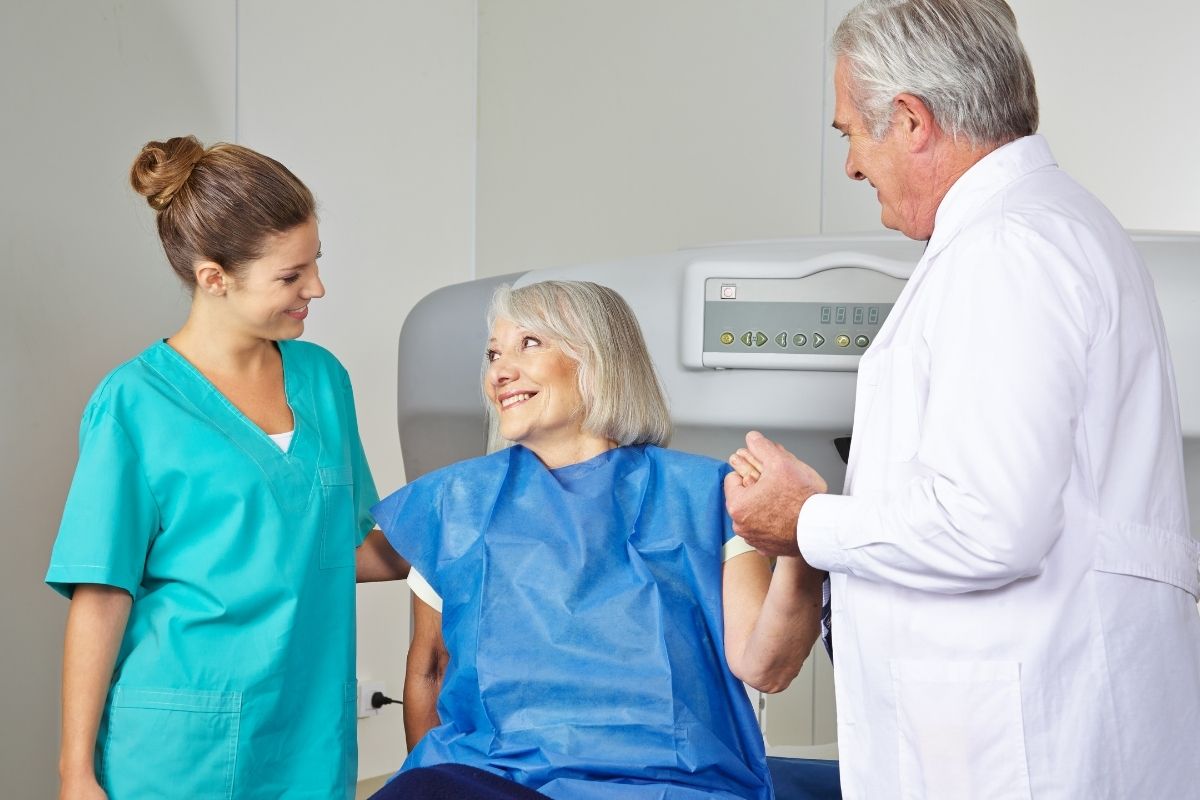
Postmenopause is the phase that immediately follows menopause. Once a woman goes for a year or more without any menstruation, the woman would transition into postmenopause. This period means a whole lot to women. As silent as it may be in a woman’s journey, it houses the next personality in women.
During postmenopause, many things begin to wind down for women. For instance, women can no longer get pregnant, no longer go through the normal monthly menstrual cycle, and may no longer enjoy sex. This phase makes the woman feel she has turned into someone else. This emotion comes from how she will generally feel about herself and life.
Once a woman successfully walks into postmenopause, her hormones will now maintain a constant low level. Before that time, it would have fluctuated, causing some variation per time until the woman entered postmenopause. Such hormones power the existence and being of a woman. It is true of estrogens and other vital hormones.
At What Age Does postmenopause Start?
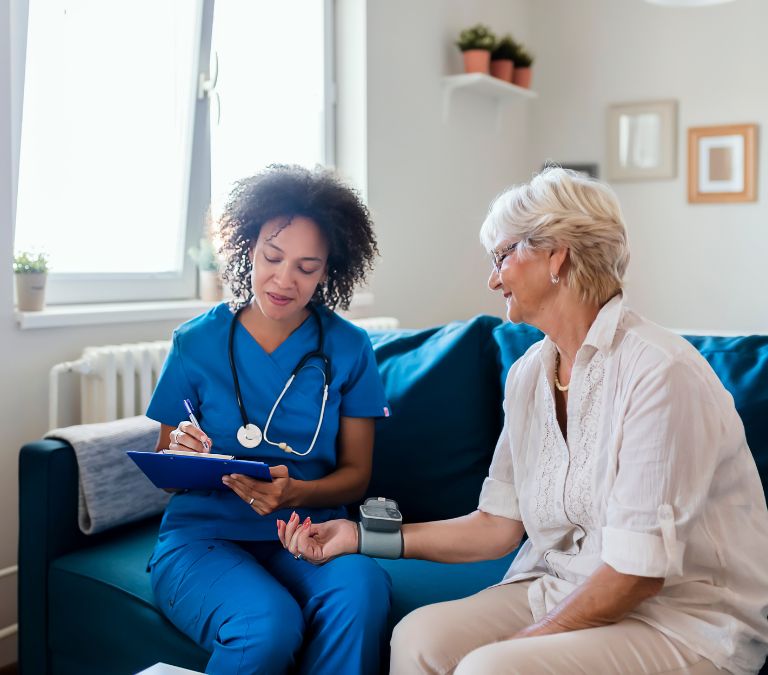
There is no general age for women at which post-menopause starts. Each woman starts menopause, goes through it, and begins postmenopause at an age unique to them. You need to know that postmenopause starts immediately after a woman has successfully gone through menopause.
It has been established that most women begin menopause in their 40s. Also, a good percentage may linger till their 50s. However, whether in their 40s or 50s, it will take another 4 to 10 years to transition into postmenopause. It means that postmenopause is likely to begin in their 50s or 60s, depending on when they begin menopause.
Interestingly, some women begin their menopause in their 30s, referred to as premature menopause. Menopause that begins between 40 and 45 is regarded as early menopause. The age at which a woman goes through menopause determines when she will enter postmenopause. So, we may not be able to give you a particular age when women enter postmenopause.
How long does postmenopause last?
One question few people have asked is how long postmenopause will last. We know that menopause will last for 4 to 5 years, but there are few cases of those that last up to 10 years. Similarly, women want to know how long postmenopause will last.
Well, you need to understand that postmenopause begins after menopause ends. So, it is the period that follows menopause. Since no other event of such coming is up in any woman’s life, postmenopause lasts until the woman dies. So, technically, postmenopause means the period between the ending of menopause and death.
Changes To Expect During Postmenopause
Once a woman reaches postmenopause, things will not always be the same as during menopause. However, in postmenopause, there are some changes you need to be aware of to better prepare yourself or your partner, as the case may be.
One significant hormone causing the change in women is estrogen. One writer noted that women don’t appreciate estrogen until it leaves their bodies. Estrogen helps make a lot of things work in a woman’s body. So, as estrogen decreases in postmenopause, many things begin to change.
Cardiovascular System
One of the ways estrogen helps in a woman’s body is evident in the inner layer of the artery wall as it regulates blood flow. The American Heart Association noted that a decrease in estrogen puts women at high risk of heart problems. This decrease is why heart problems have been identified as one of the risks of postmenopause.
Osteoporosis
Another change that comes at postmenopause is the weakening of bones. The weakening of bones originates from the decrease in estrogen too. It is one of the major changes every woman should be prepared for. As the bone becomes brittle, women should be aware of this as part of postmenopause.
Sexual Enjoyment
Sexual pleasure is the most talked-about change that occurs starting from menopause. The decrease in estrogen causes the vagina to be dry. This dryness makes penetration difficult and painful. The cause is a reduced estrogen level which makes vagina lubrication very low.
Metabolism
As the estrogen level decreases, the rate of metabolism in women reduces. This reduction will eventually make the body store fats it should have burnt. However, this is partly because of aging and the low estrogen level.
Urinary System
Another change that comes with postmenopause is the thinning of the urethra lining. Low estrogen levels also cause this. It is accompanied by a weakening of the pelvic muscles, which may be due to aging. These two combinations affect the urinary system.
How To Deal With Symptoms Of Postmenopause
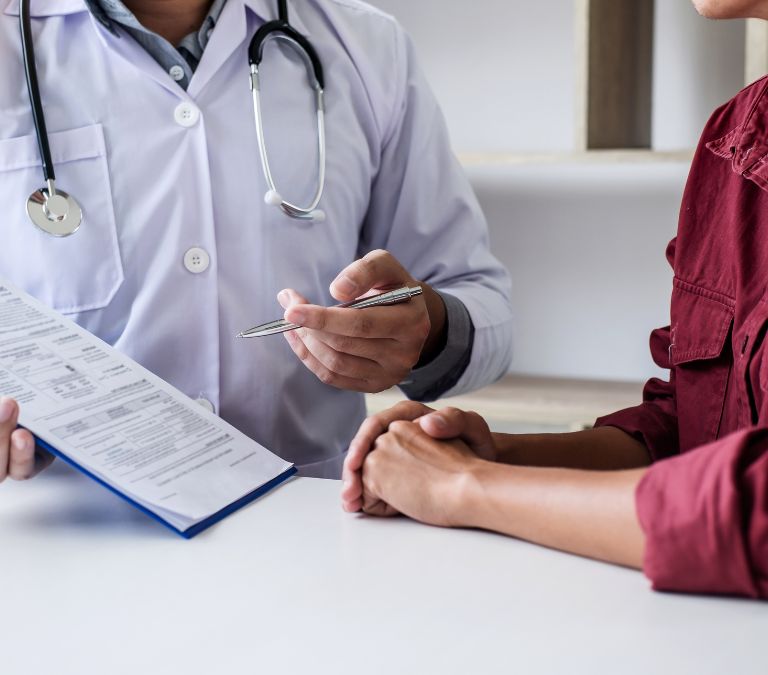
There are different ways of dealing with symptoms of postmenopause. The goal is to get relief from the symptoms. The postmenopausal woman can do things to get relief from these symptoms.
Mood Swing, irritability, or mild depression
While this may be due to low estrogen, there are things the postmenopausal woman can do to relieve herself from this symptom. For example, postmenopausal women can engage in self-calming skills such as deep breathing, yoga meditation, etc. She can also engage her friends and family members or get busy with things that enhance her sense of achievement.
Insomnia
Insomnia is the inability to sleep. The postmenopausal woman can make sleep easier for herself by setting her room cool and using things that can enhance her sleep. Some like the sound of cool music, the light off, a shower before bed, etc. Whatever works, she should exercise daily and avoid both caffeine and alcohol.
Painful Sex
Painful sex comes from the dryness of the vagina due to reduced estrogen levels. It makes penetration painful for the woman. To deal with this, the woman may use a lubricant or vaginal water-based moisturizing lotion while having sex. That will enhance pain-free penetration, and the woman will still enjoy the sex.
Hot Flashes
Hot flashes are the sudden warmth, usually around the chest, face, or neck, accompanied by many sweats. Different things for different people may trigger this. It may include but is not limited to tight clothing, caffeine, heat, spicy foods, stress, alcohol, etc. The postmenopausal woman needs to know what triggers her and avoid it.
Medications For Postmenopausal Symptoms
Several medications are used to treat postmenopausal symptoms based on the severity, the woman involved, and underlying medical conditions. Here are the common medications for postmenopausal symptoms.
Antidepressants
One of the issues with postmenopause is depression and mood swings. Antidepressants are used to uplift the mood of the postmenopausal woman out of depression. It is to be administered by an expert.
Vaginal creams
This medication caters to everything that concerns the vagina. One major body part that bears the hit of menopause is the vagina. The impact is its dryness, pain during sex, etc. This medication is meant to treat these things and get the woman back to life.
Gabapentin (Neurontin®)
This medication is one of the medications you can use for hot flashes. However, a medical practitioner must use this under strict guidelines to avoid issues.
Hormone Therapy
Since the whole issue dances around the fluctuation, reduction, and constantly low hormones in the body, hormone therapy helps raise low hormones. Therefore, it is used to treat Night sweats, Mood swings, etc.
Foods, Vitamins, and Supplements For Postmenopause
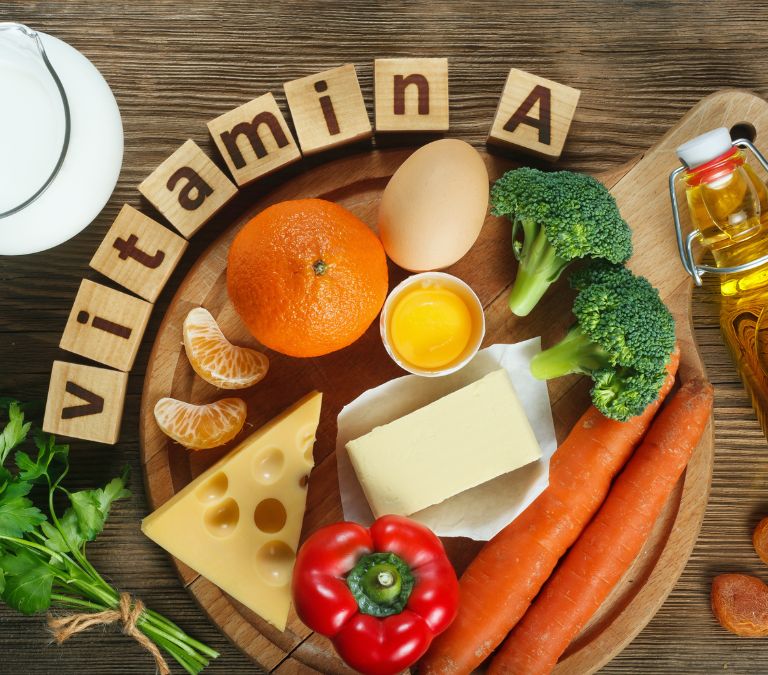
With the postmenopausal experience, many women will take their lives if care is not taken. While this is not new under the purview of postmenopause records, it is important to let every woman know that they can still live a normal life and be all they can. Although once a woman enters into this phase, she can not come out of it. The good news is that women can still maintain a great life.
While there are many ways to make postmenopause work enjoyable and life worth living, women can help themselves by ensuring they eat, drink, and ingest good things into their bodies. What goes into anybody’s system is of great importance. It can determine the future of the body and how long it has to live.
There is a general saying that if we eat our food as drugs, we won’t have health issues as we have today. It means that women can help themselves by ensuring that appropriate nutrients enter their bodies through what they eat, drink, and ingest in terms of food and drugs. So, here are important foods, vitamins, and supplements women require during postmenopause.
Food Women Need at Postmenopause
While our discussion on foods women need in postmenopause may address the situation holistically, we must note that each woman is unique with her needs and situations. For instance, postmenopausal women with medical issues may require special or certain food intake as treatment. Therefore, don’t forget to work with premedical conditions and medical practitioners for the best advice on foods to eat in peculiar cases.
We may be unable to give a comprehensive list of all the foods a postmenopausal woman needs or the ones she should be eating. But, of course, we can not do that. There are millions of foods in the world. We only need to understand what she needs in food. Even in your list of local foods, you can identify what is best for postmenopausal women and why.
Progesterone and estrogen are two main hormones working for a woman’s menstrual cycle. Unfortunately, after menopause, a woman doesn’t have much of them in her system. Part of the implication is that she may be getting tired easily. To this end, she would need some energy-yielding food. It is interesting to know that even her body understands this and tries to solve this by making her crave carbohydrates.
Since one of the postmenopausal issues is the weakening of bones, women would need calcium for their everyday movement and activities. Calcium is known to help strengthen bones. Therefore, we recommend calcium-rich food such as milk, leafy vegetables, cheese, etc. It is important to stand the stress movement from one place to another.
You will agree that menopausal women should not have issues with food digestion. Their body has become delicate and must be well managed to avoid complications. To this end, she will need food rich in fiber. The food can include but is not limited to whole grains, cereals, vegetables, etc. Taking fiber is very important in each of her meals. You have to find a way to incorporate it into her daily meals.
Vitamins Women Need At Postmenopause
Although we have identified some food needed by postmenopausal women, some of these foods would contain some of the vitamins we can discuss briefly. Still, you must understand these vitamins and why women need them after menopause. It will help you make a healthy selection the next time you want to shop for them.
While the list below is not an exhaustive list of all vitamins a postmenopausal woman needs, it is a list of the important ones. If the woman in question has special needs, you may factor that in the next time you are making a choice to cater to her special needs.
Magnesium
Magnesium is very important. It plays a double role in preventing osteoporosis for a postmenopausal woman. It helps convert vitamin D to a usable form in the body and processes calcium for use. One cannot leave this dual function out.
Vitamin D
For a postmenopausal woman, vitamin D will help to maintain bone health. Its function will help the body absorb calcium and regulate the same in the blood. Postmenopausal women without sufficient vitamin D are fracture prone. So this is key and should not be underrated.
Calcium
Since estrogen is instrumental in regulating bone formation and use, its deficiency is a blow to a woman’s body, as seen in women after menopause. Calcium is the way out. Therefore calcium is needed in women’s bodies. It will help to support the woman, or else the bones will grow weak and unsupportive for her everyday living with pains.
Vitamin K2
This vitamin works indirectly to harden the bone of a postmenopausal woman. Calcium originally helps to produce osteocalcin. Osteocalcin is a protein resident in bones that ensures calcium is hard enough to strengthen bones. So vitamin K2 cannot be left behind as far as postmenopausal women are concerned.
Supplements Women Need in Postmenopause
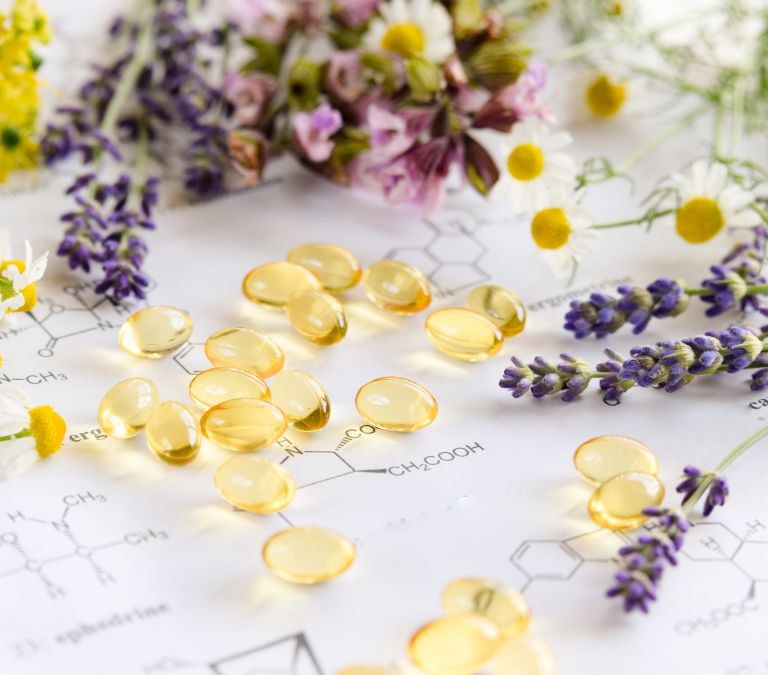
Supplements help people take needed vitamins, minerals, and antioxidants in a pill. It is based on the belief that our meals may not contain all the needed nutrients for body growth. You know, sometimes we are biased in our feeding to a fault. We select food based on personal love for them or just availability. Still, it has to be based on nutritional value. That is the problem supplements solve.
We know postmenopausal women may not get all the nutrients required to live a healthy life. Going by the hormonal changes and the reality of things, women must take important steps to show that they value the postmenopausal stage. They must have the vitamins, minerals, etc., in one way or another. Hence the need for supplements.
Though anyone can argue that they will have these vitamins and minerals in meals, the question is whether they will have the necessary vitamins and minerals. I doubt that because they have their own will on what they want to eat. Do they have enough when they take the right vitamins and minerals in their meals? Well, supplements provide solutions to all these.
There are several supplements, and we definitely can not exhaust the list. We shall talk about what is important to postmenopausal women, and you can use that to make choices that will help that postmenopausal woman become better through supplements.
Postmenopausal women are encouraged to take probiotics. This suggestion is necessary because hormonal fluctuations and imbalances from menopause may negatively impact the bacteria in the gut. It may result in digestive problems and belly fat. Probiotics will normalize hormone function, enhance bowel and help in weight loss. If postmenopausal women want to live well, they must add supplements.
Another important area to focus on is the liver. The liver detox the body and also synthesizes hormones. A postmenopausal woman has already had enough from hormonal fluctuation and imbalances in menopause. She should not have to have that worry again. However, if the liver cannot detox well enough, it will cause hormonal build-up, which is dangerous. Milk Thistle can help out in this regard.
Also, your adrenal glands need supplements too. There is an urgent need to pamper their adrenal glands with whatever will make them work efficiently for postmenopausal women. Remember that it is in charge of producing the stress hormones cortisol, estrogen, and testosterone. When you are angry, your adrenal glands produce the stress hormone cortisol instead of the estrogen you need. So a supplement can help you balance this.
Lastly, I will add that postmenopausal women can get supplements with a multivitamin purview. It will cater to a lot of things at once. It’s like using a stone to kill two birds. Interestingly, you can always get supplements in this category to fit your nutritional requirements. All you need to do is visit stores and read through the content of the multivitamin supplements; you will find the one that fits your needs.
Health Problems That Increases After Menopause
After a woman goes through menopause, the changes that occur are largely related to the woman’s health, first about the hormone imbalance, hormonal reduction, and her body’s responses to these things. Unfortunately, these body responses may spike medical conditions that may take time to heal. A worse scenario becomes what she faces for the rest of her life.
For women who have one ailment or the other before menopause, postmenopause may make it worse. This set of people must be on the lookout because one ailment may trigger other serious medical issues or affect the treatment. It, therefore, means that health-wise, things don’t always turn out good for women after menopause, except conscious efforts are put in place.
After menopause, some health problems have a high probability of increasing. However, the health aftermath of menopause is strictly unique to each woman. It depends on some factors like genetics, underlying medical conditions, etc. So what each woman faces after menopause is unique; there is no way to determine what one will face until it happens. Here are five health problems that are likely to increase after menopause;
Heart Problem
The American Heart Association noted that one-third of women often develop heart problems after menopause. They were able to identify that the problem usually begins ten years after menopause. It may have originated from the heart being vulnerable after the estrogen level reduction. Estrogen is identified to make blood vessels flexible for easy contraction and blood flow. Things become tough for the heart as this goes out of the equation.
Studies by American Heart Association reveal that those with a family history of heart problems are prone to this heart problem after menopause. Also, the Study of Women’s Health Across the Nation reveals that women who experience lots of hot flashes are more likely to have heart problems after menopause. So, guide yourself with this information.
Body Weight
The 2019 journal JCI Insight, the Study of Women’s Health Across the Nation, says menopause is instrumental to body weight gain. It happens as the body gains more fat while losing lean tissue for four consecutive years, starting from two years before menopause. This body gain is an effect of menopause on body metabolism.
There seems to be a negative chain reaction with the weight issue. Excess fats around the abdomen should be discouraged because it is a friend with type 2 diabetes. The Study of Women’s Health Across the Nation also noted that women with early abdominal fat during menopause stand a chance of having heart problems. I mentioned earlier that it’s a kind of chain reaction.
Osteoporosis
Right from menopause, the woman’s bone begins to weaken and may fracture as you enter postmenopause. The truth is that women may be aware of the one weakening. According to the American College of Obstetricians and Gynecologists, they identified that osteoporosis usually begins the year before the last menstrual period and it will continue for about three more years.
By the time a woman enters into postmenopause fully, the bone wiLl be evidently weakening, thinning, and very easy to fracture. If not addressed, this will continue to depreciate and may cause serious health issues. A woman with a history of a parent with a hip fracture should take this seriously. Remember, there are no visible warnings.
Urinary Tract Infection
According to the American College of Obstetricians and Gynecologists, bacteria flourishes as the vagina dries due to the lack of lubrication caused by a reduced estrogen level. This lack of vagina lubrication is also responsible for the thinning of the vagina walls.
The flourishing of bacteria on the vagina walls makes urinary tract infection a high-risk factor. The rate at which a woman gets a urinary tract infection also depends on the woman’s health, age, and hygiene status. The rate increases as the age of women increases.
Urinary Incontinence
Urinary incontinence centers on the difficulty in controlling the bladder. It often begins right from perimenopause and continues even at postmenopause. The commonest way to describe this is when women sneeze or cough, and drops of urine find their way out. However, it can also be described as a sudden and uncontrollable urge to urinate.
It happens because the dropped levels of estrogen and progesterone have dropped. These two hormones in the tube carry urine from the bladder, helping to thicken its walls. During postmenopause, they are no longer there, making the wall thin and weak. For this reason, it may continue to increase.
How To Deal with Postmenopausal Health Problems
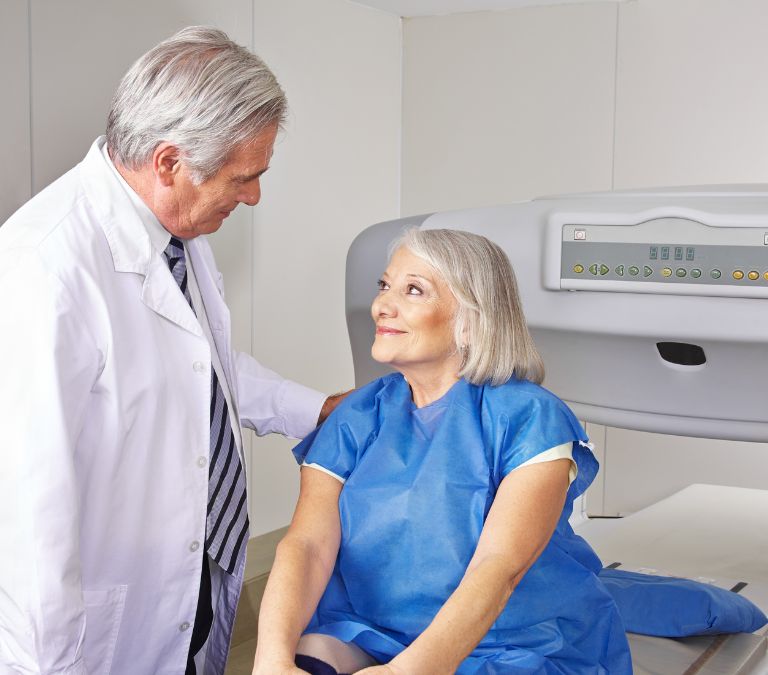
Postmenopausal health problems are an important issue every woman should be aware of. But, not just be aware of it, but also be adequately informed about how they come about and how they are being treated or how to prevent them. Every woman will certainly come to this point if they live long enough.
The lack of this knowledge has shortened the life of some women and rendered some useless to themselves. So, while women strive to know these things, it is not out of place for their partners to be actively involved in knowledge acquisition. After all, they are in it together. And when it happens, the partner will need to support his wife for an easy transition.
Please note that dealing with any postmenopausal health issue begins with understanding one’s body system and how it responds to health issues. I suppose you have known this over the years. You should have understood your body’s responses to the menopause impulses. It is very important.
Next is to have a medical doctor that you are working with. You must be willing to do health checks regularly. Discovering health issues in their formative days makes it easier to treat and get over than when it has lingered for long. At that time, it may have caused more harm than you will realize on the spot. During postmenopause, you need to keep checking yourself with your doctor.
You don’t have full control over all the factors influencing heart problems, such as your family history of heart problems. But you can influence those you have control over. Those include having a healthy life by eating foods that can prevent heart issues. In addition, you will need to stop other things like smoking and taking alcohol.
You will need to start doing some other things such as exercising. You should be able to exercise for at least 150 minutes per week. Exercise is essential. To beat heart issues, eat well and ensure you are an ambassador of healthy living. It will help you a lot. You also need an exercise instructor and medical practitioner to help you through.
For osteoporosis, one way to deal with this is through your diet and supplement. You will need to be intentional about your meals and make sure your meal has enough magnesium, calcium, and vitamin K2. Please endeavor to take the food based on dietary allowance and in line with the advice of your medical doctor. It is very important. Don’t engage in self-medication, not even for food consumption.
There are simple things you need to be doing to prevent urinary incontinence. Lots of women are guilty of doing otherwise. That may be the reason it is such a high factor. Try to empty your bladder as soon as you get the feeling to urinate. Don’t wait hours before you urinate. Find a way to urinate as soon as possible. Also, Kegel exercises are good for you. Relaxing and contracting the pelvic muscles in the kegel exercise is the way.
Can You Get Pregnant Now That You Are Postmenopausal?
Things have changed for her once any woman gets through menopause into postmenopause. However, things will never remain the same from the sexual engagement with her partner. Just as love-making has changed, the ability to give birth has changed.
A woman in postmenopause can no longer produce eggs for fertilization; therefore, pregnancy is no longer in view as far as a postmenopausal woman is concerned. Therefore, sexual engagements after menopause are meant for enjoyment and not for reproduction.
However, childbirth in a natural way is not possible for a woman after menopause. Postmenopausal women can still get pregnant through In Vitro fertilization (IVF). IVF is the infusion of a man’s semen into a woman. In this case, the postmenopausal women undergo hormone therapy before undergoing In Vitro fertilization (IVF). It has been successful in many cases, so it is highly probable to be successful.
Conclusion
Conclusively, a woman’s life after menopause can be complex and painful. Still, she is better prepared for what is coming with the awareness of what to expect and why they happen. And she seeks help from medical practitioners and other professionals that matter. In line with her experience, she will be able to get back the life she thought she had lost.
With healthy living, healthy food, and advice from professionals, a postmenopausal woman can live a normal life and go on to do great things, including having kids of her own. A willing postmenopausal woman can have a new life if she desires it and follow through with the guide.
